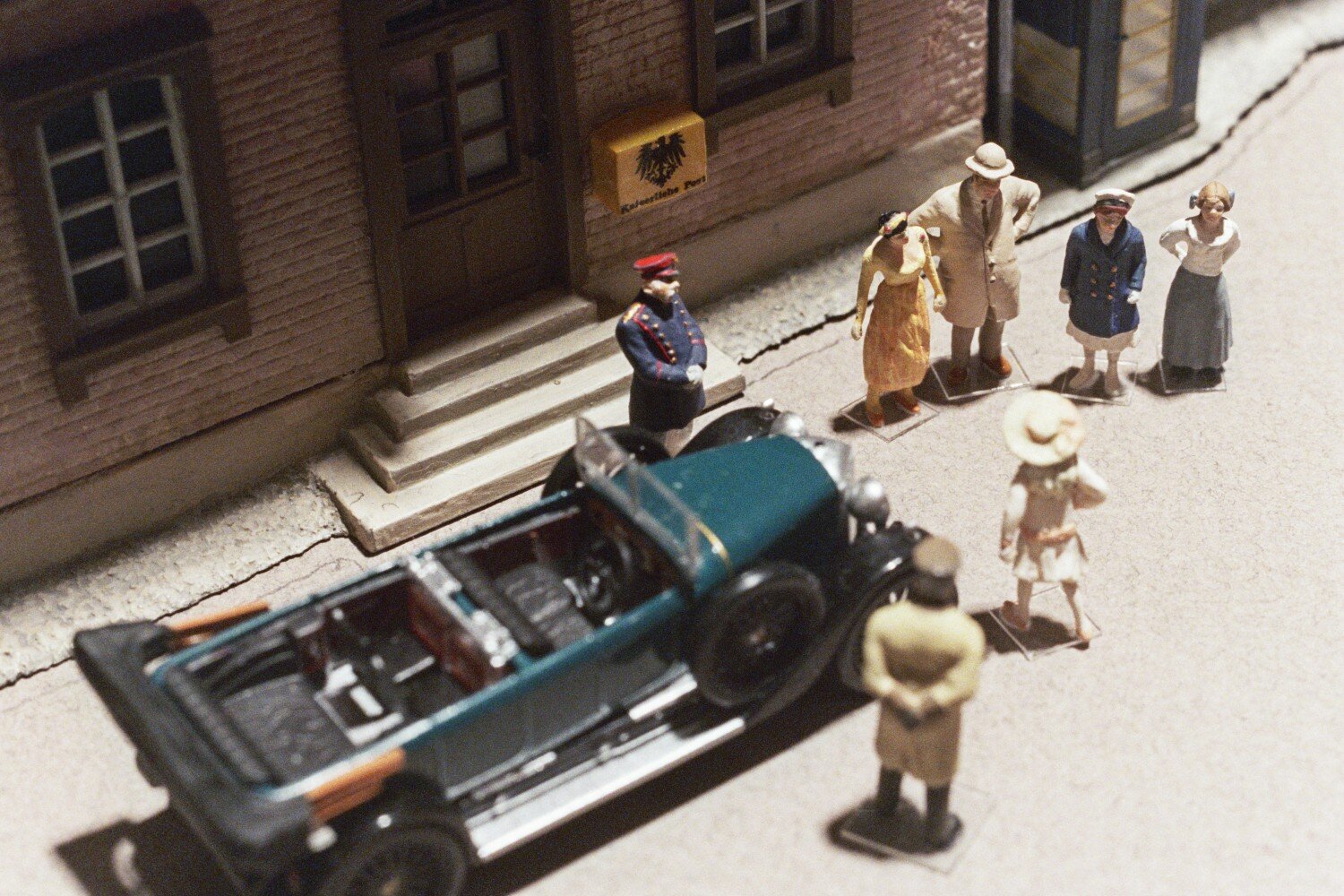
The Station at Mommenheim
A German name, an Alsatian heart
This photograph shows an Alsatian family arriving at their local station to catch the evening train to Strassburg - the German spelling of the ancient French city that became part of the German Empire in 1871.
Once the family arrives there, they’ll have to change for the express to Mannheim, across the Rhine - in Germany proper - where the children’s grandparents live. The girls and their mother have only known life under the German Empire. Their father was a little boy when France was defeated by Prussia, when Alsace and part of Lorraine were taken as “spoils” of that war. The yellow post-box bearing the German imperial eagle and stamps and coins with the Kaiser’s image remind the people of the two seized territories that they are German subjects, that France is now a foreign country.
For years there’s been constant talk of “the war that will come”, a conflict between France and Germany that many see to be inevitable. The people of France are fanatically eager to retake Alsace and Lorraine. They see it as a matter of pride - and their historical birthright. Many Germans remind the French that their long-ago King, Louis the Fourteenth, seized those provinces while they had always been part of Germany. The argument seems to have no end, except in hatred.
The stationmaster, in his red cap and Prussian blue coat, is older than the girls’ father. He fought against Germany in 1870, the conflict known in English as the Franco-Prussian war. On the other side of the battlefield at Sedan, he watched his Emperor, Napoleon the Third, surrender to the Prussians. Now he wears a German railwayman’s uniform and he’s more or less accustomed to being German. He speaks that language fluently, but with a peculiar accent from the days when he spoke French. How will he feel in only four-and-a-half years when Alsace is returned to France following the German surrender in 1918?




